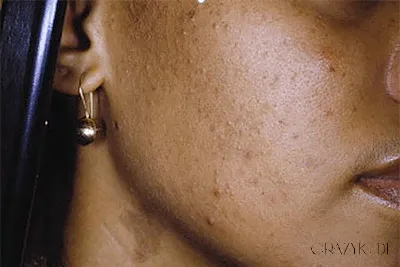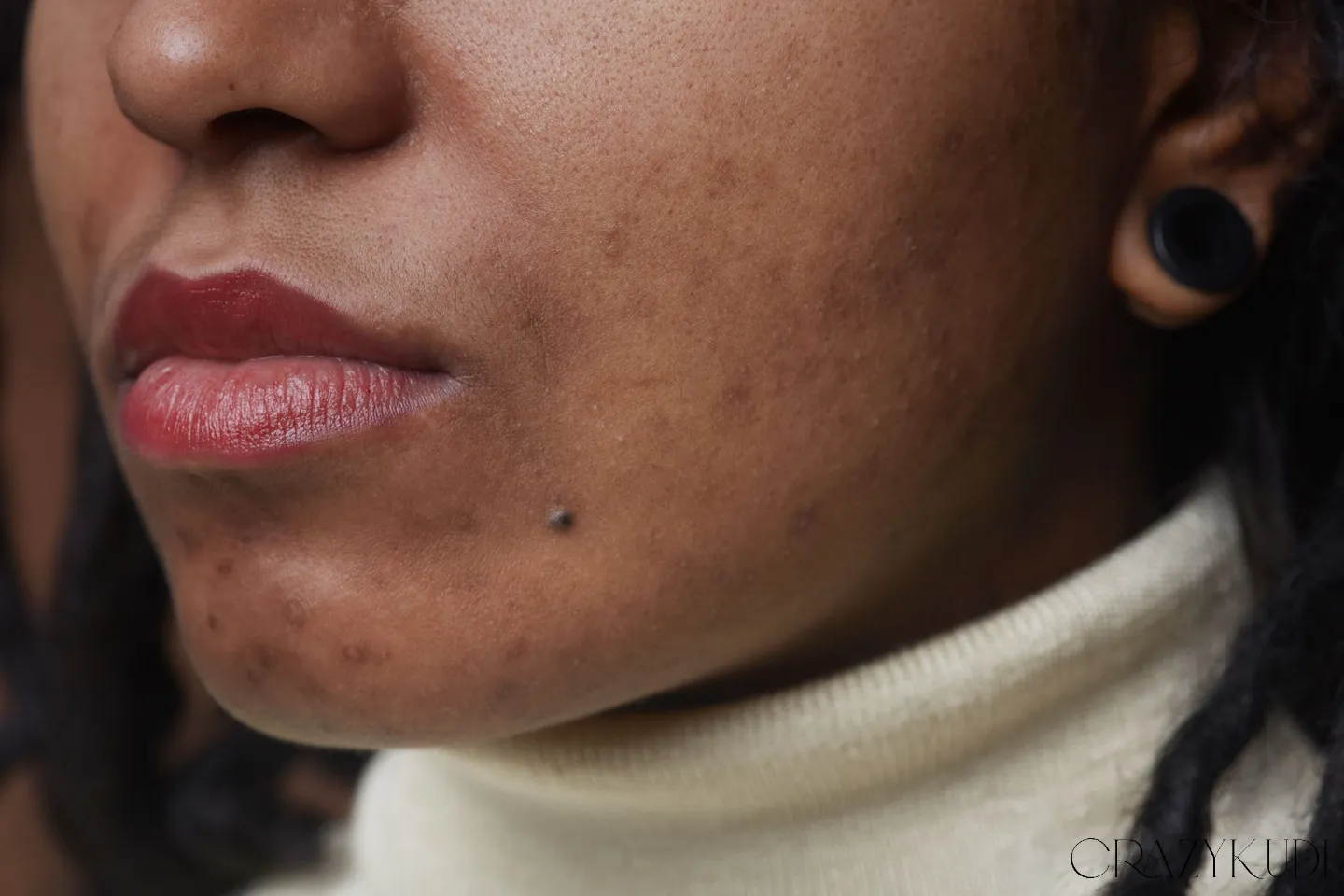Acne affects all skin types, but the treatment approach should vary—especially when it comes to melanin-rich skin. Black individuals are more prone to a specific type of scarring known as post-inflammatory hyperpigmentation (PIH)—those dark spots left behind long after the pimple heals. That’s why it’s critical not only to treat the acne itself but also to minimize irritation and inflammation during the process.
As a dermatologist specializing in ethnic skin, I’m here to share safe, effective acne treatments that won’t compromise your skin tone—and will actually enhance it.
Why Black Skin Needs Tailored Acne Care
Melanin-rich skin reacts differently to inflammation. While fairer skin might develop redness, deeper skin tones are more likely to produce excess pigment (melanin) in response to trauma, including breakouts. The result? Even a mild pimple can lead to stubborn dark spots if not managed properly.
1. Salicylic Acid (Gentle Exfoliation + Oil Control)
Salicylic acid is a fantastic first-line ingredient for oily, acne-prone skin. It helps:
- Unclog pores
- Reduce oil production
- Gently exfoliate the skin
✅ Safe for Black skin when used in 0.5–2% formulations
✅ Helps reduce blackheads and whiteheads
⚠️ Pair with a hydrating moisturizer to prevent dryness
Recommended:
- CeraVe Renewing SA Cleanser
- Paula’s Choice Skin Perfecting 2% BHA Liquid
Also read: Solutions for the Most Common Types of Acne, According to Dermatologists
2. Benzoyl Peroxide (Antibacterial Power)
Benzoyl peroxide is a powerhouse for killing acne-causing bacteria (Cutibacterium acnes). However, it can be irritating and cause discoloration on Black skin if overused or applied at high strengths.
✅ Use at 2.5% (lower strength) for spot treating
✅ Combine with hydrating and soothing products
⚠️ Avoid overuse to prevent dryness or inflammation
Recommended:
- La Roche-Posay Effaclar Duo Acne Treatment
- PanOxyl 2.5% Spot Treatment
3. Retinoids (Even Tone + Breakout Control)
Retinoids are excellent for both preventing breakouts and fading PIH. They improve skin cell turnover, help unclog pores, and even out the skin tone.
✅ Tretinoin and adapalene are dermatologist favorites
✅ Helps address both acne and discoloration
⚠️ Start slow to minimize irritation
Recommended:
- Differin Gel (Adapalene 0.1%) – OTC option
- Prescription Tretinoin – stronger and more effective under supervision

4. Azelaic Acid (PIH Hero)
Azelaic acid is one of the best-kept secrets in dermatology—especially for Black skin. It’s anti-inflammatory, fights acne, and most importantly, fades dark spots.
✅ Brightens skin safely without bleaching
✅ Antibacterial and exfoliating
✅ Great for rosacea-prone skin too
Recommended:
- The Ordinary Azelaic Acid Suspension 10%
- Finacea (15%) – prescription only
5. Oral Treatments (When Topicals Aren’t Enough)
In moderate to severe cases, you may need to combine topicals with oral medication:
- Oral antibiotics: For short-term use to reduce inflammation
- Hormonal therapies: Birth control or spironolactone (especially for hormonal acne)
- Isotretinoin (Accutane): For cystic or scarring acne (requires close monitoring)
✅ Can be effective, but monitor for pigmentation changes
⚠️ Always prescribed and monitored by a board-certified dermatologist
Avoid These on Melanin-Rich Skin
❌ Skin-bleaching agents (e.g., high-dose hydroquinone without prescription)
❌ Harsh physical scrubs or exfoliants
❌ Lemon juice, toothpaste, or DIY remedies that disrupt the skin barrier
❌ Products with alcohol or heavy fragrance
Professional Treatments for Black Skin
If your acne and discoloration are persistent, you may consider:
- Chemical peels (glycolic acid, lactic acid) under professional care
- Microneedling for texture and scarring
- Laser treatments, but only safe options for darker skin like Nd:YAG lasers
- Cortisone injections for painful cysts
⚠️ Work with a dermatologist experienced in treating Black skin to avoid complications like hypopigmentation or scarring.
Also read: Salicylic Acid vs. Benzoyl Peroxide: Which Acne Fighter Should You Choose?
Dermatologist-Backed Routine for Black Skin with Acne
AM Routine:
- Gentle cleanser
- Salicylic acid or azelaic acid serum
- Lightweight, oil-free moisturizer
- Broad-spectrum SPF 30+ (look for no-white-cast formulas)
PM Routine:
- Cleanser
- Retinoid (start with 2-3 nights/week)
- Moisturizer
- Spot treat with benzoyl peroxide if needed
Final Thoughts: Treating Acne Without Compromising Skin Tone
For Black individuals, the goal is clear skin without discoloration or long-term damage. By choosing ingredients and routines designed with melanin-rich skin in mind, you can safely treat breakouts and preserve your natural tone and glow.
If you’re struggling with persistent acne or PIH, don’t hesitate to consult a dermatologist who specializes in ethnic skin. With the right guidance, clearer, healthier skin is completely within reach.

